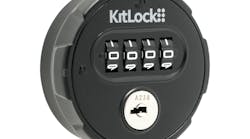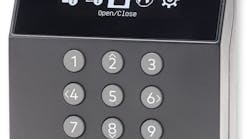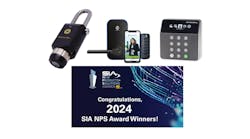One of the most interesting parts of working at Locksmith Ledger is answering the questions sent in by subscribers. It is especially satisfying to hear from less experienced locksmiths and to help them along the road to success.
Lately I have had one locksmith who regularly sends me pictures of key blanks which he cannot identify. Some of those blanks have been easy ones such as a CCL cabinet lock blank. Some other key blanks have been more difficult to determine even for an experienced locksmith. A rash of import keys for items such as trailer hitches and tool boxes are making life unpleasant for all of us. In many cases other locksmiths have found substitute key blanks that will do the job and that is the best advice I can pass on for some of the pictures sent in.
Today I received another E-mail picture from my new locksmith friend which showed a commercial-sized key blank which had raised lettering stating "Do not Duplicate". I did not recognize the keyway. In his E-mail, the locksmith innocently asked what keyblank he should use for duplication.
There has been dozens of articles written about "Do not Duplicate", but obviously this locksmith has not read one of them yet . My answer to him was that in this case some building owner had paid to have a lock system installed in order to control the amount of operating keys in existence. In addition, some locksmith had put his guarantee of key control on the line by selling that lock system to the customer.
My advice to the new locksmith was to honor the locksmith who sold that key system by explaining to his customer the value in the key system he is using. Also explain to the customer that replacement keys are only available from the locksmith who sold the system. If the customer is the legitimate owner of the lock system and still wants to work with you, then sell him on the virtues of the restricted key system that you sell and get yourself a new repeat customer. You do sell restricted key systems, don't you?





